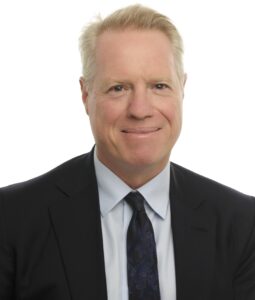Radiology
As modern medicine has become more reliant on sophisticated imaging as a key investigative tool, claims relating to misreporting of imaging investigations have grown considerably.
In part, in our view, this results from modern radiological practices in which the reporting radiologist may have no first-hand contact with the patient and may have only very limited information concerning their clinical background. This latter factor is particularly an issue, given the very limited information about the patient often provided on radiological referral forms.
Opinions as to diagnosis, based on images alone, are frequently inferior to opinions that can also account for an examination of the patient and a carefully obtained history of their health concern etc. Relative responsibilities for diagnosis between radiologist and referring practitioner and appreciation of the limits stated above are often, in our experience, far from clear.
Claims also seem to have grown with pressure on radiologists to report an ever-increasing volume of imaging. Maintaining concentration and focus over a long day of work, day after day, appropriately reporting when the patient is “only” a name accompanying the relevant images, is understandably challenging, to say the least. On the other hand, if a system is designed in such way, and provides an inferior quality of service, responsibility for this must rest with those working in it (without complaint).
Claims also arise in relation to lack of communication between members of staff in a busy radiological practice, including between the sonographer, radiographer or other technician performing the relevant imaging and the reporting radiologist. Patients commonly disclose important information to such contact, but it may then not be communicated to the radiologist, who may be in a different geographical location (in some cases, a different continent!)
Claims also commonly arise with obstetric ultrasound imaging, particularly claims relating to failure to appreciate actual or potential development developmental abnormality (resulting in so-called ‘wrongful birth‘ cases or damages claims for missed abnormalities that may have been correctable in utero).
Finally, with the increasing scope for interventional radiology, claims have and continue to arise in relation to technical issues surrounding such intervention, as well issues concerning informed consent and advice generally by the radiologist about the advisability of such intervention and alternatives. Commonly (but wrongly), the approach by radiologists is that these are issues for the referring GP. Legal obligations are often not met.
Given the scope of radiology, mis-reporting can have disastrous consequences because of the resulting delay in diagnosis and so initiation of appropriate treatment.
In a significant number of cases we have handled, such misreporting has resulted in the relevant patient’s death. In others, it has resulted in profound long-term harm to their position through:
- progression of cancer;
- loss of an opportunity for optimal surgical treatment (many traumatic fracture cases);
- progression of other pathology (for instance spinal bleeds);
- progression of post-operative complications including sepsis/infection.

About JJ LAW
Renowned as Perth’s leading medical negligence lawyers, JJ Law is headed by Kimberley Bavin and Anna Sundararajan. Kimberley, a Notre Dame University Australia alumna, honed her litigation skills during a significant career stint at Bradley Bayly Legal. With her deep involvement in high-stakes court cases, Kimberley is renowned for her dedication to medical negligence claims. Anna, having joined the firm in 2017, uniquely combines her legal acumen with a rich nursing background. This experience enriches her approach to complex legal cases. Together, they embody JJ Law’s commitment to delivering some of Perth’s highest quality and specialised legal services in the medical field.
To make it as easy as possible, just fill out the form and we will contact you to let you know whether we think investigating a claim is something you should think about. There’s no obligation and no fee involved…
If you’d prefer we can even just send you an email answering your question (if it is simple enough!) or pointing you in the right direction.
If we think a claim is worth investigating, we’ll arrange to meet for a coffee and a chat.
If you want, go ahead and let us help you with the first step.
Phone
Address
Unit 2, 194 Hay Street,
Subiaco
